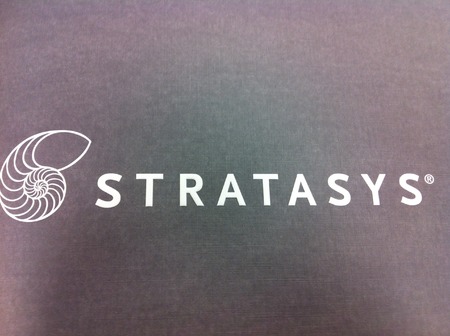3D printing giant Stratasys launched legal action against Afinia, a marketer of personal 3D printers. The statement from Stratasys says:
Afinia’s sale, promotion and use of its Series H printer infringes patents directed to part porosity, liquefier structure, temperature control, and tool paths for constructing part perimeters. The most recent Stratasys patent that Afinia is alleged to infringe was issued in January 2013.
While everyone’s aware that the original Stratasys patent on plastic filament extruding 3D printers has long expired, there remain many associated patents on other aspects of 3D printing. In fact, Stratasys holds over 560 patents.
Evidently they believe that Afinia’s machine runs afoul of some of them.
Here’s the interesting part: Afinia doesn’t even make the machine they’re selling. It’s actually a rebranded Up! 3D printer from PP3DP, a branch of China-based Tiertime. We’ve heard from some that the Up! likely violated Stratasys patents and so Tiertime does not directly sell it in the US. However, Afinia took that risk and it now appears they will be subject to a lawsuit.
What triggered Stratasys’ action? We suspect two factors:
- Afinia’s reputation for providing a great product and excellent service led to a dramatic expansion of their business. When you start making lots of money, then you become a target.
- Stratasys’ recent acquisition of MakerBot meant they now directly compete with Afinia, thus making legal action more likely.
We don’t know how it will end, but probably Stratasys has many more lawyers than Afinia. There were no comments from Afinia.
After Afinia, who will be the next target? Makers of filament-based 3D printers, beware.
Via Stratasys


